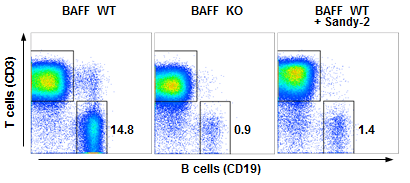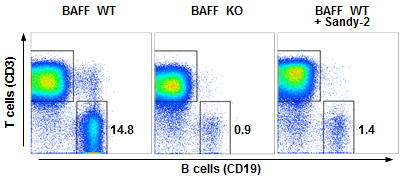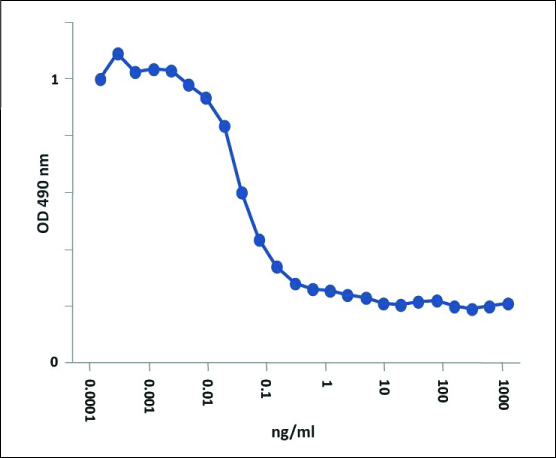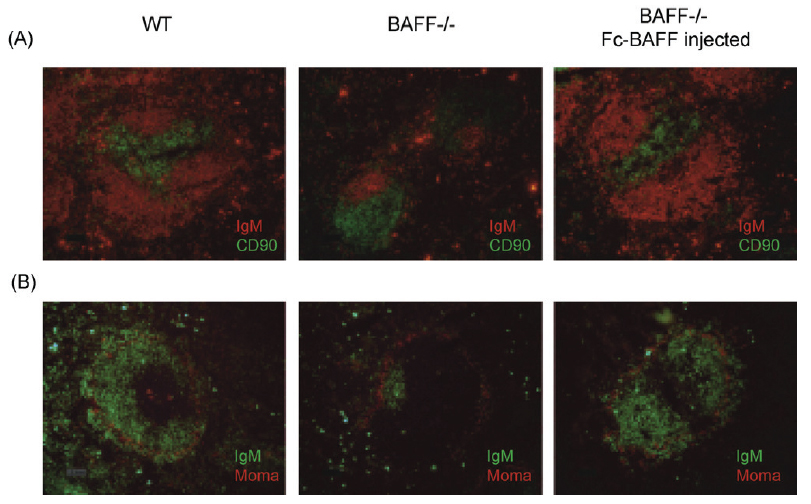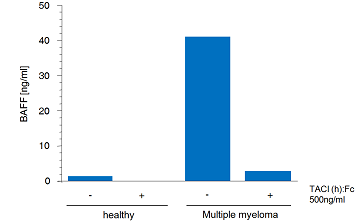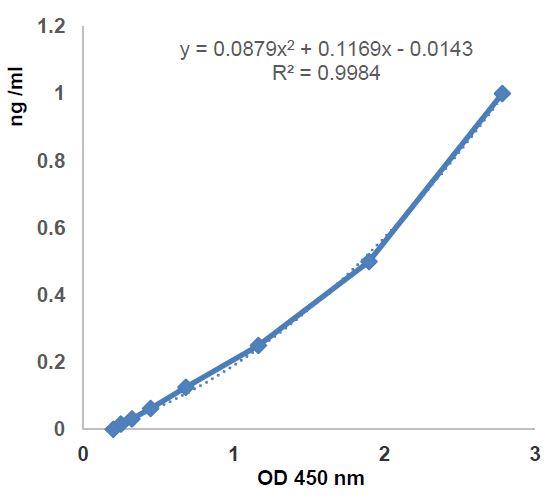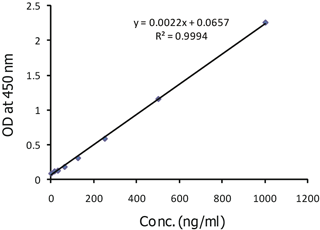BAFF, Soluble (mouse) (rec.)
AG-40B-0022
Protein IDQ9WU72
Product group Proteins / Signaling Molecules
Overview
- SupplierAdipoGen Life Sciences
- Product NameBAFF, Soluble (mouse) (rec.)
- Delivery Days Customer10
- CertificationResearch Use Only
- Concentration0.1 mg/ml
- Estimated Purity>90%
- Gene ID24099
- Target nameTnfsf13b
- Target descriptiontumor necrosis factor (ligand) superfamily, member 13b
- Target synonymsBAFF, BLyS, D8Ertd387e, TALL-1, TALL1, THANK, TNFSF20, Tnlg7a, zTNF4, tumor necrosis factor ligand superfamily member 13B, b cell-activating factor, tumor necrosis factor ligand 7a
- Protein IDQ9WU72
- Protein NameTumor necrosis factor ligand superfamily member 13B
- Scientific DescriptionBAFF is mainly produced by innate immune cells such as neutrophils, monocytes, macrophages, dendritic cells, follicular dendritic cells. T cells, activated B cells, some malignant B cells and also non-lymphoid cells like astrocytes, synoviocytes and epithelial cells can also produce BAFF. BAFF binds three distinct receptors (BAFF-R, TACI and BCMA) expressed predominantly on B cells, although activated T cells also express BAFF-R. BAFF is a master regulator of peripheral B cell survival, and together with IL-6, promotes Ig class-switching and plasma cell differentiation. Besides its major role in B cell biology, BAFF co-stimulates activated T cells. Deregulated expression of BAFF leads to autoimmune disorders in mice. In humans, elevated levels of soluble BAFF have been detected in the serum of patients with various autoimmune diseases such as Sjoegren syndrome, Rheumatoid arthritis (RA), Multiple sclerosis (MS) and Systemic Lupus Erythematosus (SLE). BAFF has also increased levels in some lymphoid cancers. - Protein. Mouse BAFF (aa 127-309) is fused at the N-terminus to a FLAG®-tag. Source: HEK 293 cells. Endotoxin content: 90% (SDS-PAGE). BAFF is mainly produced by innate immune cells such as neutrophils, monocytes, macrophages, dendritic cells, follicular dendritic cells. T cells, activated B cells, some malignant B cells and also non-lymphoid cells like astrocytes, synoviocytes and epithelial cells can also produce BAFF. BAFF binds three distinct receptors (BAFF-R, TACI and BCMA) expressed predominantly on B cells, although activated T cells also express BAFF-R. BAFF is a master regulator of peripheral B cell survival, and together with IL-6, promotes Ig class-switching and plasma cell differentiation. Besides its major role in B cell biology, BAFF co-stimulates activated T cells. Deregulated expression of BAFF leads to autoimmune disorders in mice. In humans, elevated levels of soluble BAFF have been detected in the serum of patients with various autoimmune diseases such as Sjoegren syndrome, Rheumatoid arthritis (RA), Multiple sclerosis (MS) and Systemic Lupus Erythematosus (SLE). BAFF has also increased levels in some lymphoid cancers.
- Storage Instruction-20°C,2°C to 8°C
- UNSPSC41116100
- SpeciesMouse


